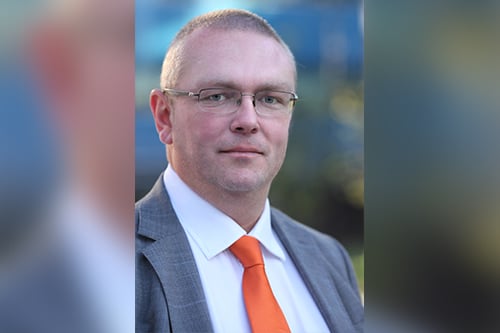

I had better start with a retraction. In my last column, I may have given the impression that 2021 would somehow be an upgrade on 2020. That the worst of the pandemic was over and all we had before us were the sunny uplands of our future. I now realise that was a terrible miscalculation and I can only apologise.
But while the monotony of our house arrest wears ever thinner, there do remain a few shards of light indicating a more optimistic future. One, for me, is the infectious smile of Bukayo Saka as he masterminds the current Arsenal revival. And another, for all of us I hope, is the promise of a vaccine sometime between now and September. And it is this possibility – and with it the prospect of a more than cursory return to EC3 – that has started to drive market conversations to what our future trading landscape might look like. A subject that we dedicated our recent board meeting to in order to try to find a consensus among the broking community that we can use to initiate a conversation with our carrier cousins.
At this point I should emphasise that the thoughts that follow are my own, derived from conversations to which I have listened. But they are the beginnings of what might become our key design principles for the new marketplace. That, first and foremost, must be a tool that is focussed, above all else, on delivering value to our clients.
While we will be discussing all our working environments, it is not really about us. If what we build is not predominantly designed to deliver ever better, cheaper and more innovative insurance solutions, we will have failed. A market with no customers is no market at all.
And we need to remain iconic to preserve and develop our brand. Clients appreciate coming to one of the world’s great cities to meet with decision-makers at both their broking house and the insurers they use. They view a trip to the underwriting room in Lloyd’s as an exclusive bucket list item that they can boast about when they return home. So, while the cost reductions that remote working has delivered will lead some to focus exclusively on transactional efficiency, it is not always just about that. Lowest cost does not always equate to best value. London is the Harrod’s of insurance.
The underwriting room has the potential to play more than just this role as the museum of modern insurance. It can re-establish itself as the focal point of the market – the fulcrum where actors gather and deals get done. But we need to revive some of its features that have been on the wane recently. Principally, the need to ensure that suitably empowered decision-makers are available to determine complex issues. If the room is not the place where the tricky risks are got over the line, it loses its power.
That – the negotiation of the complex – is one area in which a return to face-to-face interaction is important. Another is creativity. Collaborating to invent can involve challenging conversations. You need to disagree to agree in the end. You have to say things that some may not want to hear. And why this works, and teams thrive, is that you can soften the harsher messages through body language that Microsoft Teams cannot deliver. We need to get off Zoom and get back in the same room.
While we are on the subject of human interaction, here is another body blow for CFOs. Producers will travel. Clients will continue to welcome those that make the effort to go and see them in person. If you aren’t prepared to do this, you will cede competitive advantage to your rivals.
All this co-location will increase the probability of serendipity – one of the magical features of our marketplace. The chance encounter from which great deals emerge. This is a thing in our world. It is something that has not been happening for nearly a year now. We need it back.
We will keep some things from our current world – simple claims are being settled much faster because people are available to work on them not stuck in meetings – and our old one. The timeless advantage of seeing each other. There are things we need to tweak: how do we develop staff in a hybrid digital world? How do we help younger staff create the networks such as we have been reliant on since last March? And there are things we will ditch. Queueing for simple endorsements and stuffy dress codes. It will be a marketplace you will still recognise, but you will also recognise the differences.
And the final principle? Flexibility. Technology is developing at warp speed. Things that don’t quite work remotely now could do so in the very near future. Why trudge into London to see an underwriter in the room when you could both send your avatars? Now we have the chance to build back better we must realise that we may never stop building again.
